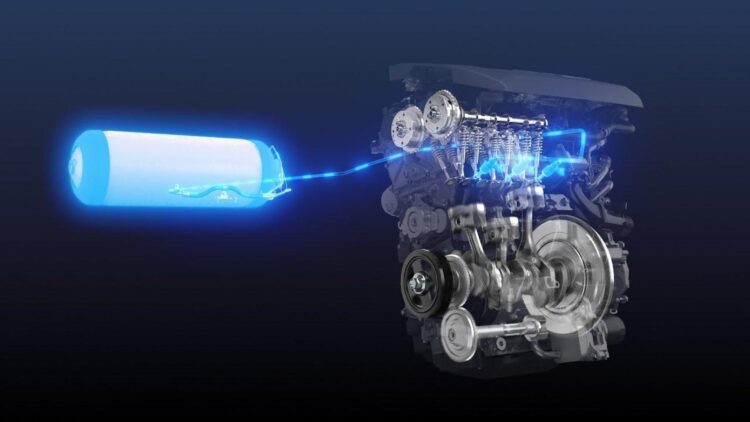For years, Yamaha Motor has led the way in sustainable technology, building engines for automobiles that harness the power of hydrogen as a clean fuel source. Now the Japanese mobility giant has been commissioned by a major car manufacturer to develop a revolutionary hydrogen-powered V8 engine. And not just any engine—it produces only water as its byproduct!
Yamaha has pioneered a new hydrogen engine that combines sustainability and performance
When none other than the Toyota Motor Corporation approached Yamaha to create a zero-emissions V8 combustion engine fuelled entirely by hydrogen, intended for automotive applications, Yamaha eagerly took up the exciting challenge. As a result, they managed to develop a 5.0-liter engine prototype that combines high performance with remarkable sustainability.
Based on the engine found in the Lexus RC F coupe, this prototype features modified components, specifically its injectors, cylinder heads, and intake manifold. By making these modifications, Yamaha was able to optimize the engine for hydrogen combustion.
This allows the vehicle equipped with the engine to generate an impressive power output of over 450 horsepower (over 336 000 watts) at 6,800 rpm along with a peak torque of 540 Nm at 3,600 rpm.
As an added perk, the engine prototype’s 8-into-1 exhaust manifold produces a distinctive high-frequency sound, one that exhibits an almost harmonious quality.
This engine has the potential to pave the way to a carbon-free future
Because the engine prototype is 100% fuelled by hydrogen, its emissions are completely clean, releasing only water vapor as a byproduct. This aligns with Yamaha Motor’s long-term goal to develop and promote technology that eliminates carbon emissions, contributing to environmental protection.
At the same time, says Yoshihiro Hidaka, the president of Yamaha, they are still dedicated to refining conventional internal combustion engines to enhance efficiency and reduce environmental impact.
“We are working toward achieving carbon neutrality by 2050,” explained Yoshihiro Hidaka. “At the same time, ‘Motor’ is in our company name, and we accordingly have a strong passion for and level of commitment to the internal combustion engine.
“Teaming up with companies with different corporate cultures and areas of expertise, as well as growing the number of partners we have, is how we want to lead the way into the future.”
It’s not just the automotive industry: Yamaha has also set its sights on the marine sector
Looking beyond the automotive industry, Yamaha is also hoping to extend their innovative hydrogen engine technology into the marine sector, where the low power density of battery-powered electric systems poses significant challenges for certain applications.
As a result, they have also developed a 5.6-liter hydrogen-powered outboard prototype for recreational boats. Similar to its land-based counterpart, the outboard creates propulsion through combustion without emitting carbon dioxide.
So far, preliminary testing of the outboard has shown promising results: it also boasts a rating of 450 horsepower (again, over 336 000 watts), and it offers a range of 50 to 75 miles. This is based on the estimated 50 pounds of hydrogen pressurized to 10,000 psi within high-pressure, plastic-lined composite-overwrapped fuel tanks. For the marine sector, the outboard prototype presents an opportunity to transition away from traditional fuel sources without compromising performance.
As you can see, Yamaha’s innovative, hydrogen-powered engine marks a significant stride towards sustainability in both the automotive and marine sectors. Both its prototype engine and outboard are examples of high performance, clean energy, and emission-free technology. So long as Yamaha stays on the right track, the goal to attain carbon neutrality in 2050 looks very promising. Here’s hoping that other mobility manufacturers will follow their example and contribute to an eco-friendly future as well!

